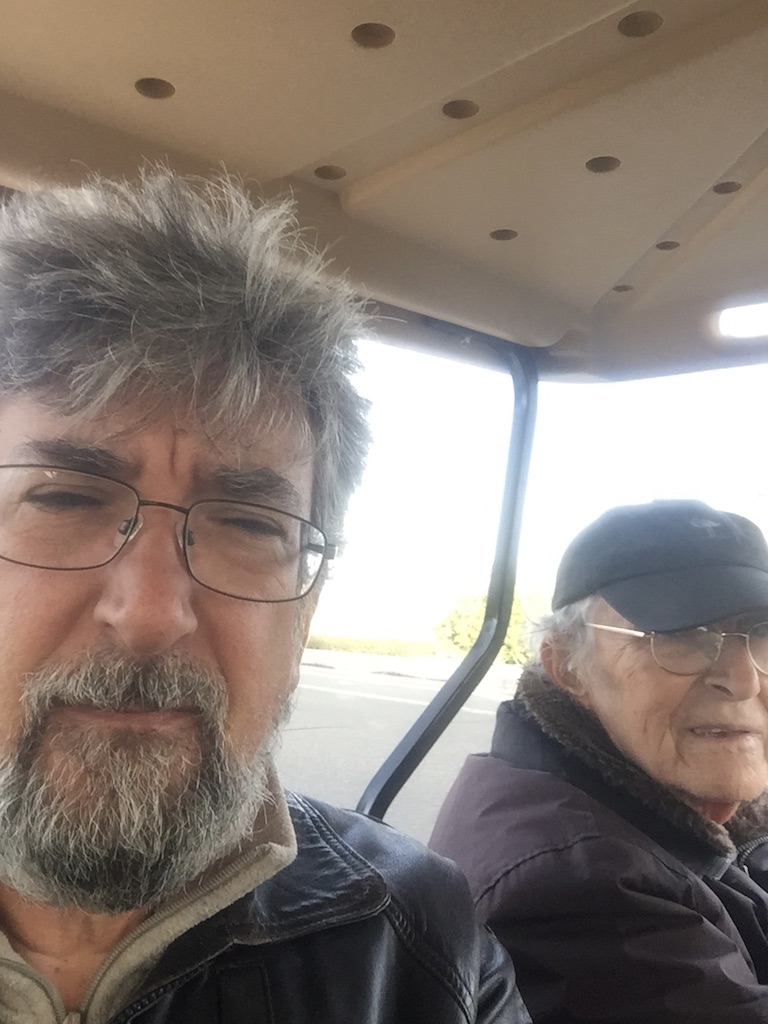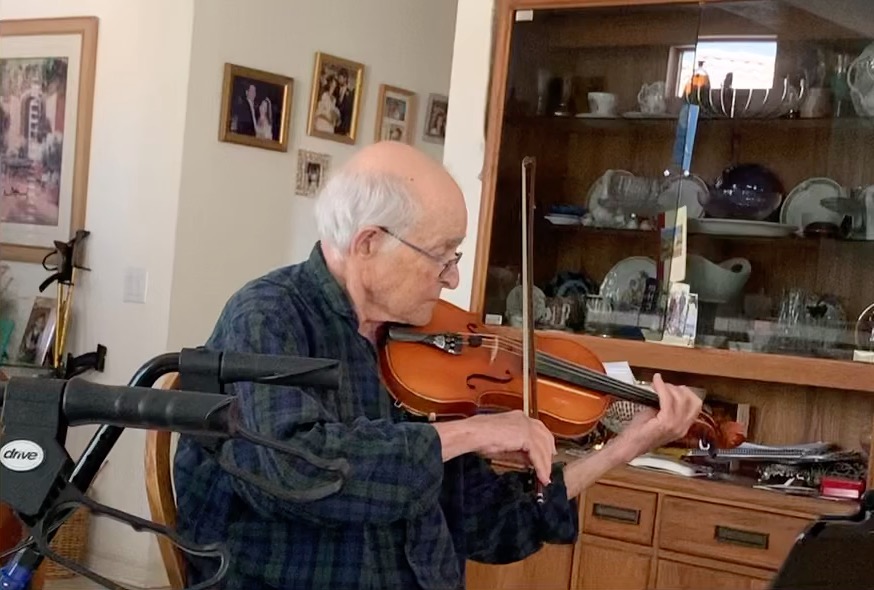Hi Gary,
Just wanted to write and thank you once again for being a great instructor and teaching such an interesting course. The pandemic has forced me to fixate and think about death (more than I would like to sometimes?), but your course challenged me to figure out my own perspective on death while understanding the various ways death exists and presents itself. I definitely feel more comfortable thinking about death now because of the tools you have given me and am really glad I was able to take a course that has not given me textbook knowledge that I had to memorize for an exam and then never recall again, but knowledge I can carry with me the rest of my life. Looking forward to meeting you in person this upcoming year! Great job again on instructing so well during such an unprecedented time:)
————————————————————
Hi Gary,
I hope this email finds you well.
First, I want to thank you for your incredible lectures this year. No joke and no exaggeration. I was fortunate enough to enroll in both Sacred Drugs and Death & Dying, and both of these courses truly expanded my horizons on the preset notions and perspectives that society has on death, religion, and drugs. There was a reason I forced my entire family to watch your featured podcast with Joe Rogan!
————————————————————-
After having the fortunate opportunity to listen and take both of Laderman’s famous courses, it is evident that there needs to be more federal investments pertaining to the research and analysis of these drugs to ultimately be available to the general public and not just the terminally ill.
P.S. Thank you so much Gary for this entire semester. I had no idea what I was getting into when I enrolled first in Sacred Drugs, but it was one of the best academic decisions I made this year!
——————————————————————
First, I would like to thank you for a fantastic semester! I’m actually a NBB and Econ major so this course was a completely different experience than my usual classes. Right now, I’m remotely taking classes from New York but will return to campus next semester. While at home I like to read out my essays to my parents as a way of proofreading. In addition, I find that explaining the topic to them helps my own understanding as I have to find a way to be concise. This surprisingly led to some of the longest family discussions we’ve had in the house, and I learned a lot more about my parent’s own religious beliefs, which really brought us closer together especially during these troubling times. I thoroughly enjoyed this course, and it has had a positive impact on my personal life and for that I want to thank you again!
————————————————————
Taking a class on Death and Dying during a global pandemic was a surreal and fascinating experience. I have never given much thought to death and the mortality of people before this year and this class because I am not religious and luckily I have not lost anyone close to me. There was real potential for me to feel freaked out and emotionally taxed, by the discussion and study of death, but instead I found it interesting. Death is inevitable and talking about it is important, especially in the middle of a pandemic. The article we read for class called “What Is Death?” in the New York Times has stuck with me throughout the semester. The article focuses on exploring how the pandemic changes how humans perceive death. The author, BJ Miller, writes that he “cant say what [death] is… death is defined by what it lacks”. I have thought about this a lot. Death fascinates us because we know so little about it despite the fact that everyone dies and everyone knows someone who has died. The human experience is defined by death as people try to accomplish their goals before their time runs out. Life and death are opposites and yet don’t exist without one another. Humans can answer the question “what happens to our bodies when we die?”: we decay. Humans cannot, however, answer the question:” what happens to our souls, our memories, and our mind when we die”. BJ Miller wrote, “I would say that, for me, death is when I can no longer engage with the world around me. When I can no longer take anything in and, therefore, can no longer connect. At times, social distancing has me wondering if I’m there already”. Can someone be dead while alive? I personally don’t think so. Social distancing removes physical interaction but not interaction through media and phone calls. I think social distancing would have been much harder in a time without the technology we have today. These questions I now ask myself are incredibly philosophical and spiritual and I have never thought like this before.
———————————————————————–
Before the spring semester of 2021, my last undergraduate semester at Emory University, the topic of death was not something that typically crossed my mind. After taking death & dying with Gary Laderman, I can truthfully no longer say that is the case as it has now become a thought that my mind loves to ponder about. The biggest impact that this class had on me is that “everyday people” view death as one of the worst possible outcomes in the world and it is a thought that draws feelings of nervousness, fear, uncertainty, anxiety, etc. The class dug deeper into this methodology and made peers like myself wonder, why is this? Why are people so afraid of death if it is truly the only thing in life that is inevitable? That inevitableness is something that cannot be fought by human beings and the biggest impact was learning that there is true beauty that lies in death. Religions are formed all over the world with life actions and rules that predetermine where we may spend our time in the afterlife. With different views from all over the world, no one truly knows what the afterlife entails and that is the true beauty of something that we cannot fight. I view myself to be a Christian man but at the same time, I do not predicate my actions on where I would spend time in the afterlife. The class taught me to simply enjoy your life, do the things that make you happy, be a good person to preserve the rest of humanity, and at the very end, you have no control so why have fear or doubt? This is one of the biggest takeaways for me because in all the religions we looked at in class, there isn’t one that can be pinpointed and deemed correct over all of the others! At the end of the day, the class by Laderman taught me to enjoy your life, do right in your own eyes, and don’t fight the inevitable.
————————————————————–
On a different note, thank you for creating the Death and Dying playlist; I’ve been enjoying it very much. It has many great new songs but also many familiar ones whose lyrics I’ve never paid attention to. For example, Blue Oyster Cult’s Don’t Fear the Reaper has always been one of my favorites but only since seeing it on your playlist did I realize that the lyrics discuss the inevitability of death. For a pop song, the lyrics are actually quite deep.
—————————————————————
Hi Professor Laderman,
I hope you’re doing well. My name is and I took your course on Death and Dying this semester. I just wanted to reach out and sincerely thank you for such an interesting course and tell you that I have grown and learned a lot taking it. I’m sure that handling a topic like death as a professor is complicated, and I so appreciated your openness and willingness to approach hard topics. On a personal note, by having such a welcoming space to confront topics surrounding death, I feel much less scared of it. I hope you have a great summer, and thank you again for everything.
————————————————————————
I have enjoyed my time studying death this semester. As our class comes to a close, I now recognize and appreciate the importance of studying death, and I would encourage all students to do so if they have the opportunity. Even though there are so many takeaways I have from this course, one stands out in particular: COVID-19 has increased my frequency of thinking about death, and that does not have to be a bad thing. With today’s headlines being dominated by the carnage caused by the pandemic, in combination with frequent questioning of daily activities I previously assumed to be safe, it is hard not to think about morality. Before taking this course, the thought of death gave me fear and anxiety: what does it feel like? Will it be painful? There are so many unknowns surrounding death that it made me scared to think that it will one day happen to me. Then, during the course of the semester, I read Emma Pattee’s article in The Washington Post and found it to be one of the most impactful pieces that we covered, especially in part because of the idea that “it’s imperative that you be in denial about your impending death.” It is so easy to get caught up in the little stresses and frustrations of everyday life – now more than ever. But the constant reminders of death in our pandemic-ridden world have allowed me to make peace with morality, and have inspired me to live a life worth remembering. Pattee’s article discusses how people can become more humble, grateful, and appreciative of life when they are reminded of morality, and this idea has had the biggest impact on me this semester. I fully embrace my impending death and it has inspired me to appreciate the beautiful gift of life and make a meaningful contribution to others’ lives while I am here. It is my hope that others recognize that reminders about death do not need to cause anxiety, but rather provide a sense of purpose and source of inspiration.
——————————————————————-
 Gary Laderman
Gary Laderman We talked about death–after all, his son, me, is supposed to be an expert on the subject. He was not afraid of death. He and I took solace in the fact that no one gets out of here alive, that death was a part of life, not its opposite. Much to my surprise, although, then again, maybe it shouldn’t have been surprising at all, considering my interests and pursuits, but… he also asked me about taking mushrooms and whether I thought that might be a good idea for him. I love the guy so much.
We talked about death–after all, his son, me, is supposed to be an expert on the subject. He was not afraid of death. He and I took solace in the fact that no one gets out of here alive, that death was a part of life, not its opposite. Much to my surprise, although, then again, maybe it shouldn’t have been surprising at all, considering my interests and pursuits, but… he also asked me about taking mushrooms and whether I thought that might be a good idea for him. I love the guy so much.